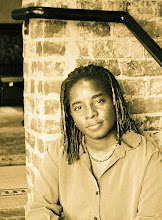Remember being a child and having your parents punish you for doing something that they thought was outside of the range of acceptability. Maybe you harassed your little sister or cut the cable to the only television set you had in the house. Not only did they inform you more than a thousand times what it was you did wrong but they went to every length to make sure you didn’t repeat what it was you did.
At the time, you understood that your parents were punishing you for doing something that you felt impelled to do. To the mind of a child, this was inconceivable because how else were you supposed to act if not from a feeling place. As a child, you didn’t rationalize your actions. You weren’t focused on the fact that if you pushed one sibling down the stairs that your parents would even the score in the end.
Where kids are kids, adults can be adults and unfortunately, many folk haven’t changed from doing some pretty outrageous things. People can get a free pass up until a point but eventually excuses don’t cover the cost of loss, pain, and shame. For example, take the teenager who decides to send nude pictures of herself via a text message or the internet.
When that teen grows up she will move to higher grounds of inappropriate expressions unless she is able to change the feelings that lay at the base of her actions. You’ve heard the saying that where there’s smoke, there’s fire. And you can bet that where there are teens misbehaving there is some resistance to some internal feeling. Unfortunately, lots of parents are unaware that their teen’s actions are an indication of how they are feeling and that there’s possibly something seriously wrong.
What needs to be addressed is your feelings and how you got to feeling the way you feel. This method works. If the real cause beneath your actions is not uncovered, then you are compelled to act in a reactionary fashion to outer events that are not necessarily connected to your most charitable response. In essence, you’re not afraid to show emotions, but the ones you show are childish, juvenile, sophomoric, and not really well thought out … pretty much like when you’re a child, a pre-teen, or even more so, an immature adult.
Subscribe to:
Post Comments (Atom)

No comments:
Post a Comment